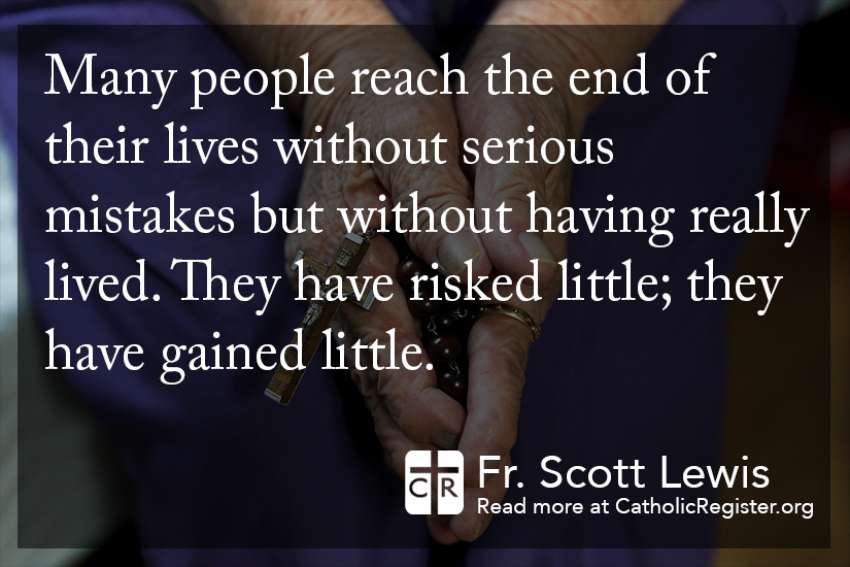God's word on Sunday: Children of the light walk with courage
By Fr. Scott Lewis, S.J
33rd Sunday in Ordinary Time, Nov. 19 (Year A) Proverbs 31:10-13, 16-18, 20, 26, 28-31; Psalm 128; 1 Thessalonians 5:1-6; Matthew 25:14-30
The model of the perfect wife presented in Proverbs is an ideal figure.
The problem with ideal figures is that they seldom exist in real life. Obsession with such a figure can prevent us from accepting and loving real, live individuals with all their quirks and faults.
There are two ways of looking at the text. We could say that it supports traditional female roles and consigns the wife to the realm of the home, and there would be some truth in this interpretation. After all, it was written in a patriarchal and traditional culture.
But after examining the described qualities carefully, an interesting figure emerges. The perfect wife is not meek or subservient, but serenely capable and confident. She is gifted and skilled, wise and generous, a source of strength and comfort for others, spiritually mature and above reproach. She even engages in the buying and selling of property.
Her husband didn’t sound overly busy and the good reputation that he enjoyed is not his doing but hers. We don’t find a description of the perfect husband in Proverbs.
This is a perfect candidate for midrash — the imaginative exploration and retelling of a scriptural passage for a deeper and broader apprehension of the truth. It might take the form of a dialogue between the description of the ideal wife and her ideal perfect husband. Respectful, affirming, encouraging, accepting and loving might be qualities high on the list. These qualities would be joined by fidelity, integrity, even-temperedness and patience. There are probably many more.
It is helpful to have ideals before us for inspiration and guidance. But these ideals must not be used as a measuring stick to demonstrate the deficiency of others. In the end, we learn to accept and cherish others (as well as ourselves) in humanity and imperfection. After all, God does the same.
Paul had a warning for the community in Thessalonica concerning the return of Jesus. He didn’t know exactly when it would occur, but it would come with the sudden stealth of a thief in the night.
Dictatorial regimes often justify their brutality and control by pointing to the law and order they provide. Peace and security was often the selling point of Roman rule. As with ideal figures, peace and security is usually a mirage.
Paul warned that despite these claims, everything would be swept away in a flash. There would be no further opportunity for conversion or change of heart. For this reason, it was important for his community — as it is for us — to live always like children of the light.
What does it mean to live as children of the light as we wait for the Lord’s return? The Gospel parable is clear that merely keeping our slate clean is not sufficient.
Many people reach the end of their lives without serious mistakes but without having really lived. They have risked little; they have gained little.
The Lord has left each of us with something to nurture — experiences, abilities, talents, significant people in our lives and even weaknesses. We are expected to use them to their maximum in learning to live, love and serve. This implies risk, for we will probably make mistakes along the way and take wrong turns.
It is more important that we use these mistakes as opportunities for growth and transformation. The first two characters in the parable fulfilled this expectation admirably. Willing to take risks and meet challenges, they could return the original sum of money to their master with a healthy profit, who was delighted and rewarded them accordingly.
The third, however, was paralyzed by laziness and fear of failure. He took no risks or challenges and instead buried the sum of money in the ground. All he had to return to the master was the original sum and the master was definitely not pleased.
He stripped the slave of everything and ejected him from his presence. The parable ends with a warning and a promise: Those who gain through their life experiences will be blessed with even more, but those who gain little or nothing because of fear or laziness will lose even what little they think they have.
God blesses those with courage, trust and determination.


